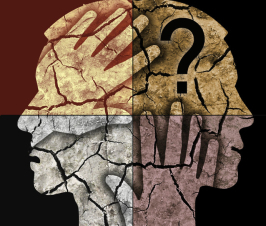Less screen time and more green time are associated with better psychological outcomes among children and adolescents, according to a study published September 2 in the open-access journal PLOS ONE by Tassia Oswald of the University of Adelaide, and colleagues.
Less screen time and more green time
The prevalence of mental illness among children and adolescents is increasing globally. Technological developments in recent decades have increased young people’s engagement with screen-based technologies (screen time), and a reduction in young people’s contact with nature (green time) has been observed concurrently. This combination of high screen time and low green time may affect mental health and well-being. But research investigating the psychological impacts of screen time or green time typically considers each factor in isolation and fails to delineate the reciprocal effects of high technology use and low contact with nature on mental health and cognitive outcomes. To address this question, Oswald and colleagues analyzed the findings of 186 studies to collate evidence assessing associations between screen time, green time, and psychological outcomes (including mental health, cognitive functioning, and academic achievement) for children and adolescents.
High levels of screen time appeared to be associated with unfavorable psychological outcomes
In general, high levels of screen time appeared to be associated with unfavorable psychological outcomes, while green time appeared to be associated with favorable psychological outcomes. Young people from low socioeconomic backgrounds were underrepresented in the literature overall and may be disproportionately affected by high screen time and low green time, making this a priority group for future research. However, additional longitudinal studies and RCTs are needed to determine whether decreasing screen time and increasing green time would improve psychological outcomes. According to the authors, preliminary evidence suggests that green time could potentially buffer the consequences of high screen time, meaning nature may be an under-utilized public health resource to promote youth psychological well-being in a high-tech era. Investment in more rigorous research is needed to explore this.
Robust evidence needed to guide policies and recommendations around appropriate screen time and green time
Oswald adds: “This systematic scoping review highlights that nature may currently be an under-utilized public health resource, which could potentially function as an upstream preventative and psychological well-being promotion intervention for children and adolescents in a high-tech era. However, robust evidence is needed to guide policies and recommendations around appropriate screen time and green time at critical life stages, to ultimately ensure optimal psychological well-being for young people.”
1. Tassia K. Oswald, Alice R. Rumbold, Sophie G. E. Kedzior, Vivienne M. Moore. Psychological impacts of “screen time” and “green time” for children and adolescents: A systematic scoping review. PLOS ONE, 2020; 15 (9): e0237725 DOI: 10.1371/journal.pone.0237725

Razi Berry is the founder and publisher of the journal Naturopathic Doctor News & Review, which has been in print since 2005, and the premier consumer-faced website of naturopathic medicine, NaturalPath. She is the host of The Love is Medicine Project docuseries, The Natural Cancer Prevention Summit, The Heart Revolution-Heal, Empower and Follow Your Heart, and the popular 10-week Sugar Free Summer program. From a near death experience as a young girl that healed her failing heart, to later overcoming infertility and chronic fatigue syndrome and fibromyalgia through naturopathic medicine, Razi has lived the mind/body healing paradigm. Her projects uniquely capture the tradition and philosophy of naturopathy: The healing power of nature, the vital life force in every living thing and the undeniable role that science and mind/body medicine have in creating health and overcoming dis-ease. You can follow Razi on social media: Facebook at Razi Berry, Instagram at Razi.Berry and join the Love is Medicine group to explore the convergence of love and health. Look for more, and listen to more Love is Medicine podcast episodes here.

















